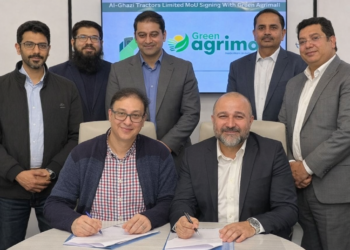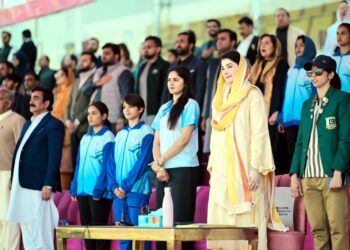Tehran, In a significant diplomatic engagement that underscored the growing bond between Iran and Pakistan, Iranian President Masoud Peshkeshian praised Pakistan’s unwavering support during Iran’s recent conflict with Israel, stating that he “can never forget Pakistan’s solidarity” in that crucial time. The remarks were made during a high-level meeting with Pakistan’s Federal Interior Minister Mohsen Naqvi in Tehran, where both sides reaffirmed their commitment to regional peace, bilateral cooperation, and Islamic unity.
The meeting, held at the presidential complex in the Iranian capital, took place amid evolving geopolitical developments in the Middle East and South Asia. This diplomatic exchange is being viewed as a major step forward in strengthening Iran-Pakistan ties, particularly in the context of growing challenges in the Islamic world.
High-Level Diplomatic Meeting: A Gesture of Solidarity
Interior Minister Mohsen Naqvi, representing the government of Pakistan, met President Masoud Peshkeshian and conveyed a message of goodwill and solidarity from Prime Minister Shehbaz Sharif. During the meeting, the two leaders discussed matters of mutual interest, including:
- Regional security concerns
- Bilateral cooperation in trade and energy
- Diplomatic coordination on Middle East affairs
- Border management and counterterrorism collaboration
Naqvi also took the opportunity to congratulate President Peshkeshian and the Iranian leadership on their strategic success in the recent war with Israel, describing it as a “victory for the Muslim Ummah” and a testament to the resilience and wisdom of Iran’s leadership, particularly Supreme Leader Ayatollah Ali Khamenei.
Iran’s War Against Israel: Background and Context
Iran’s conflict with Israel, which escalated dramatically earlier this year, drew global attention after a series of retaliatory strikes and air assaults between the two nations. The war, which many analysts describe as the most direct confrontation between Iran and Israel to date, emerged in the aftermath of sustained hostilities across the region, including:
- Ongoing Israeli operations in Gaza and southern Lebanon
- Iranian support for Hezbollah and Palestinian resistance groups
- Attacks on Iranian infrastructure allegedly carried out by Israel
Iran responded with a full-scale military counteroffensive, leading to a regional crisis that prompted the involvement of international stakeholders, including the United Nations, OIC, and major world powers.
During this volatile period, Pakistan stood firmly with Iran, becoming the first Muslim-majority country to pass a parliamentary resolution condemning the Israeli aggression and affirming Iran’s right to self-defense. Pakistan’s foreign office also raised the issue at various international forums, reinforcing its stance on the importance of Muslim unity and regional stability.
President Masoud Peshkeshian’s Remarks: Deep Appreciation for Pakistan
During the meeting, President Peshkeshian made heartfelt remarks about Pakistan’s role during the war:
“We will never forget Pakistan’s consistent and courageous support during our war against the Zionist regime. At a time when several Muslim countries hesitated to take a clear stance, Pakistan stood with Iran in both spirit and action.”
He emphasized that such acts of solidarity were not only politically significant but also a symbol of Islamic brotherhood, adding that the Zionist regime seeks to sow division among Muslim states to weaken their collective voice.
Call for Unity Among Islamic Nations
The Iranian President used the occasion to advocate for greater cohesion among Islamic nations, warning against external efforts to fragment the Islamic world. He emphasized that only through unity and mutual cooperation could the Muslim world build a robust and effective defensive and diplomatic front against aggressors.
“If Muslim governments fully understand the necessity of Islamic unity,” he said, “they can build an unbreakable wall of resistance against Zionist oppression and foreign interference.”
President Peshkeshian’s message was in line with Iran’s long-standing foreign policy objective of forming a pan-Islamic coalition—an idea that has gained renewed traction after the war with Israel.
Strengthening Bilateral Ties: From War Solidarity to Economic Cooperation
Both Pakistan and Iran acknowledged the importance of translating their diplomatic goodwill into practical partnerships. President Peshkeshian pointed out that there are immense opportunities for cooperation in areas such as:
- Cross-border trade and transit
- Energy exchange, particularly gas and electricity
- Security collaboration to counter terrorism and smuggling
- Cultural and educational exchanges
Interior Minister Naqvi echoed these sentiments and assured the Iranian President that Pakistan views Iran not just as a neighbor but as a vital strategic partner in regional development.
Message from Pakistan’s Prime Minister
Minister Mohsen Naqvi also relayed a message of respect and best wishes from Prime Minister Shehbaz Sharif, reaffirming Pakistan’s commitment to deepening brotherly relations with Iran.
“We are proud of Iran’s resistance and resilience. The leadership shown by Ayatollah Khamenei and your own strategic direction during this war will remain an inspiration for all Muslim nations,” Naqvi said.
Officials Present During the Meeting
The meeting was attended by a number of senior officials from both sides, indicating the high level of importance both nations placed on the discussions:
- Iranian Interior Minister Sikandar Momeni
- Special Assistant to the Iranian President
- Iranian Ambassador to Pakistan
- Pakistani Ambassador to Iran
This diverse representation from both governments highlights the comprehensive nature of the engagement, spanning defense, diplomacy, and inter-governmental collaboration.
Significance of Pakistan-Iran Relations
Pakistan and Iran share a long and complex history, marked by periods of mutual cooperation and occasional friction. In recent years, however, both sides have expressed a renewed desire to enhance strategic cooperation, especially in light of evolving security threats and economic challenges.
The Iran-Pakistan gas pipeline project, border security mechanisms, and recent cross-border militant incidents have also been key components of bilateral dialogues.
This meeting is expected to accelerate progress on several pending agreements, particularly those related to border trade zones, energy transmission, and counter-narcotics collaboration.
Regional and Global Implications
Iran’s acknowledgment of Pakistan’s support during the war against Israel is likely to boost Islamabad’s diplomatic standing in the region. It sends a message to other Muslim-majority countries that Pakistan continues to uphold a principled foreign policy, even amid pressures from global power blocs.
Furthermore, the statement positions Pakistan as a potential mediator or bridge between Sunni-majority Gulf nations and Shia-majority Iran, especially at a time when the Islamic world is grappling with challenges of disunity and foreign intervention.
Conclusion: A Step Toward Strategic Islamic Unity
The meeting between President Masoud Peshkeshian and Interior Minister Mohsen Naqvi represents more than a diplomatic courtesy—it is a signal of emerging strategic alignment between two important Muslim countries.
With growing calls for unity among Islamic nations in the face of common challenges like Zionist aggression, Islamophobia, and external geopolitical manipulation, the Iran-Pakistan axis could become a critical pillar of the Muslim world’s future strategy.
Both countries now appear committed to building on this goodwill and ensuring that their bilateral partnership evolves beyond rhetoric into actionable frameworks for peace, stability, and regional development.
























